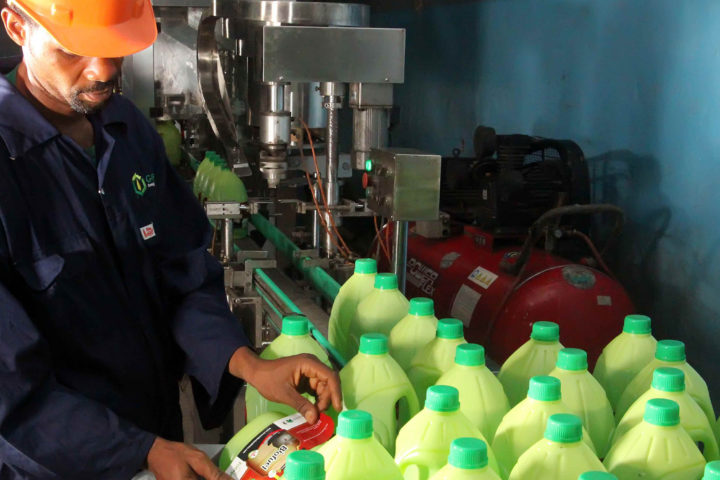Green Energy Biofuels
Nigeria
Country
Bio-fuels
Technology Types
Equity Raised (USD$)
5000000
Project IRR (%)
17
GHG Mitigation Potential (tonnes CO2e pa)
122225
More than 100,000 women die each year from indoor pollution in Nigeria, where more than 80% of the population lack access to the power grid. One victim of her circumstance inspired her grandson, Femi Oye, to develop an affordable and clean energy option that would be accessible to low-income households.
Green Energy Biofuels (GEB) developed a biofuel gel made from biowaste including water hyacinth, sawdust, municipal and agricultural waste. Oye said he wanted to find a solution that would prevent women from having to walk long distances to collect firewood, and reduce women’s exposure to the hazardous fumes they inhale while providing meals for their families.
“We formed a new company that wouldn’t depend on the importation of materials,” explained Oye, who developed the ethanol-based fuel through the genetic modification of enzymes that break down waste, as well as a matching stove.
Oye soon realised that demand for his fuel outstripped GEB’s production capacity. “There was an opportunity to scale, but we needed to attract the right kind of investment. While we didn’t need assistance on the technology, we did need additional resources and guidance to help move us to the next level.”
GEB submitted a proposal to PFAN, and were selected for induction into the pipeline. In 2013, Oye presented the project at the 1st West African Clean Energy Financing Forum.
“Over the four months we worked with PFAN, we gained access to broader resources and a network of other partners and investors helping us to fine-tune the product-viable missions and bring together exactly what investors would be most interested in,” said Oye.
“We were able to understand the different dimensions of investment to improve our product, and still able to stay true to our philosophy of balancing people, planet and profit.” Oye said that not every investor is interested in all three, and being able to attract the right kind of investor is key. “We’ve learnt a lot and our investors are patient and they care. For them, it’s not just about the economic benefits, but they also track Green House Gas reduction, impact on lives and the number of jobs created.”
The project was able to leverage additional investment from the African Development Bank and access new resources, partners and investors.
“In 2013, we were reaching 120,000 customers. Today we have 500,000 customers in Nigeria, Ghana and Benin. We continue to expand.”
GEB plans to scale up to reach one million customers and increase its capacity to produce additional fuel and stoves. “The market demand continues to outpace our production as no one else has been able to match the product. It’s not just cleaner; it’s also cheaper than most options in the market.” GEB currently produces 2.5 million litres of fuel annually in a market that demands more than 20 million litres per year.
“The feedback received from our customers shows us that it is a great product. It’s beautiful to see a company grow where an entrepreneur can return money to its stakeholders, but to us, it’s more about the connection we have with the community and the different we’re making in their lives.” This is Oye’s, and GEB’s, greatest motivation.
“Over the four months we worked with PFAN, we gained access to broader resources and a network of other partners and investors helping us to fine-tune the product-viable missions and bring together exactly what investors would be most interested in,”
